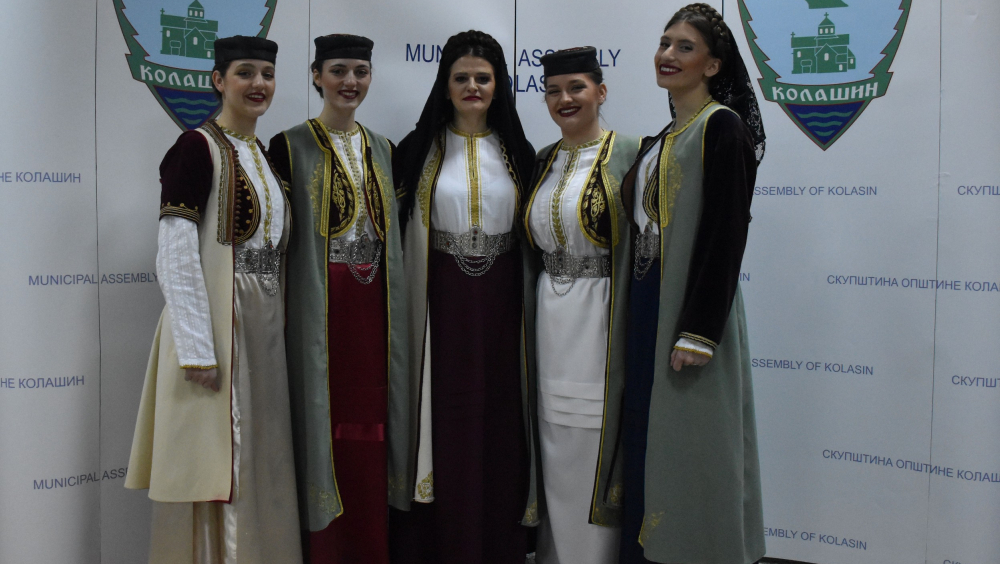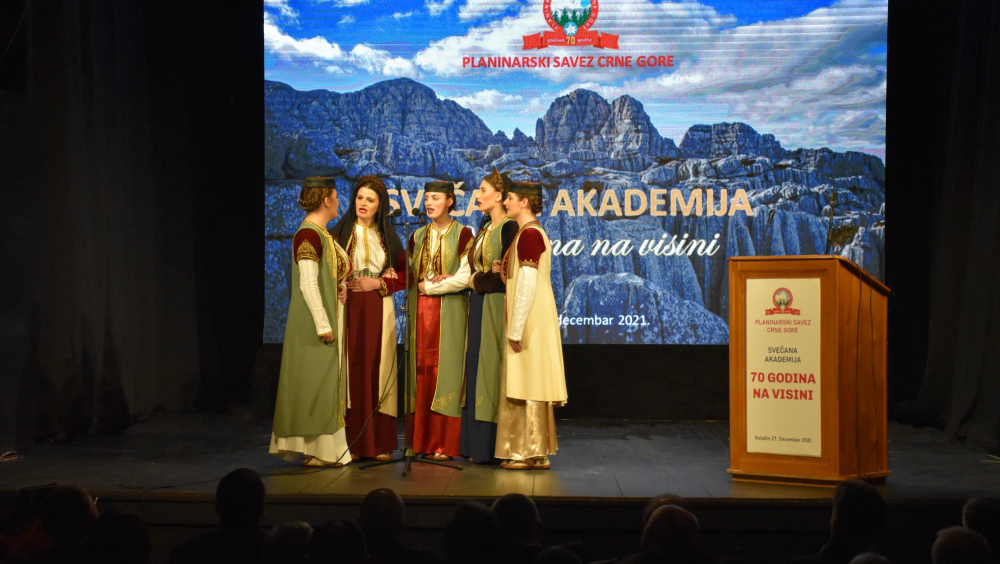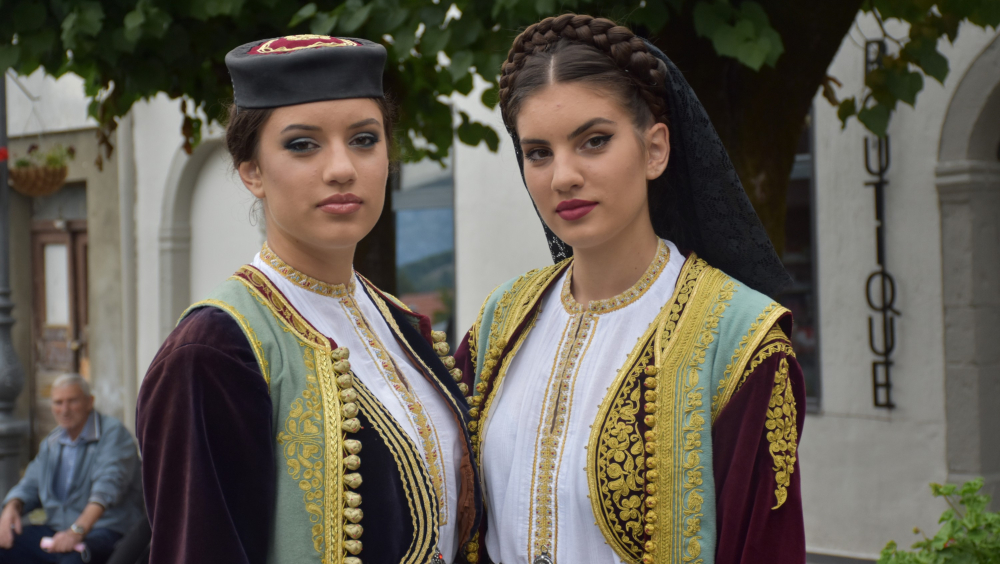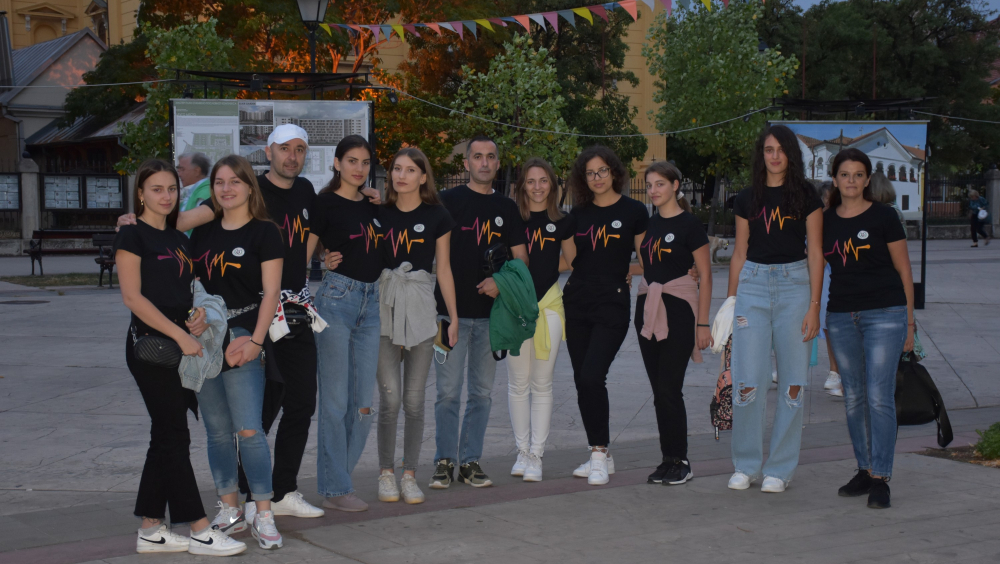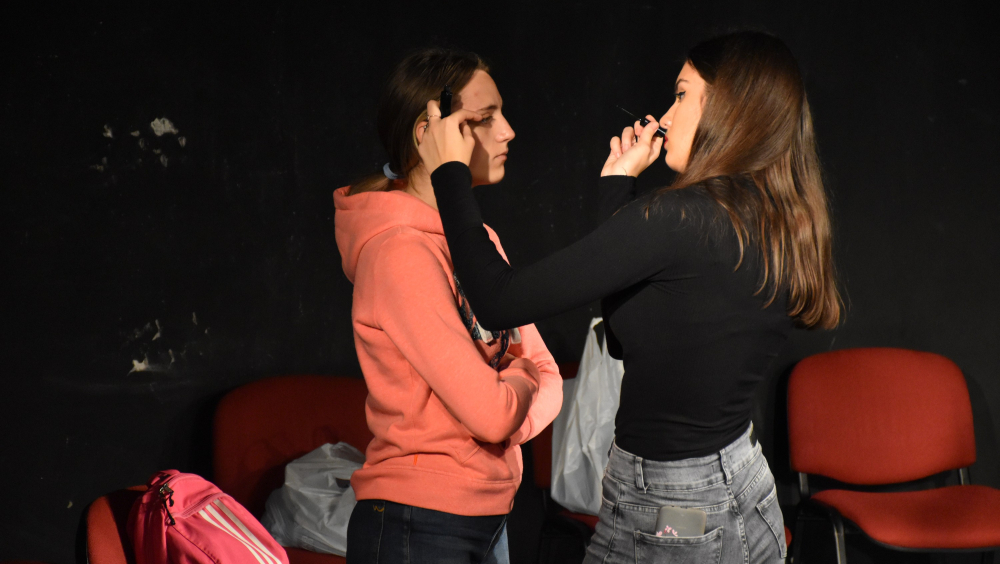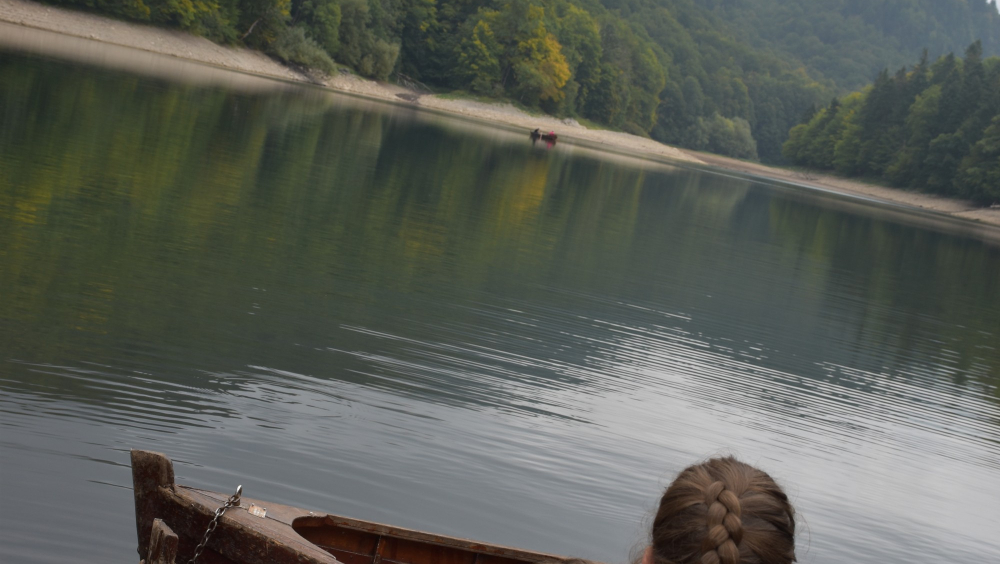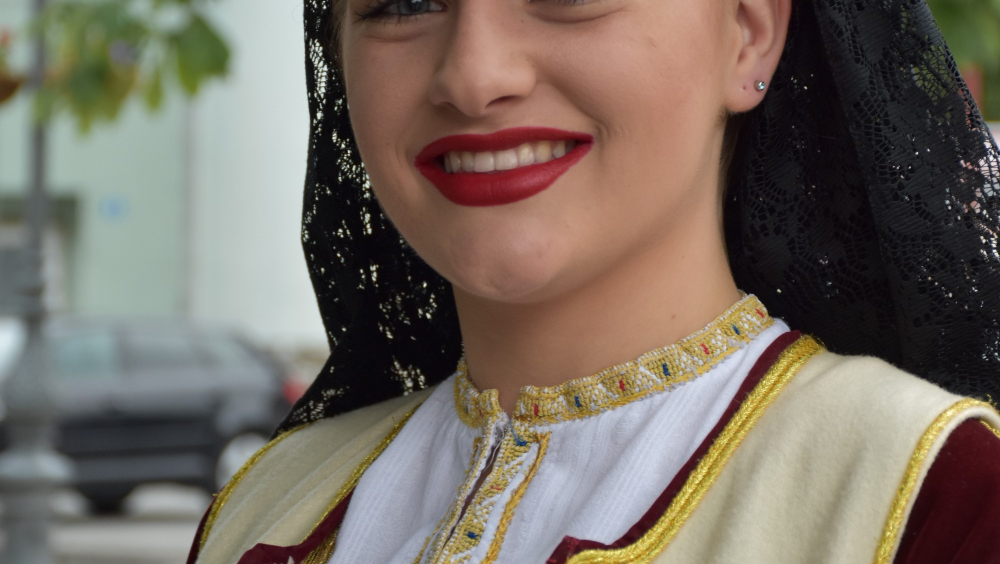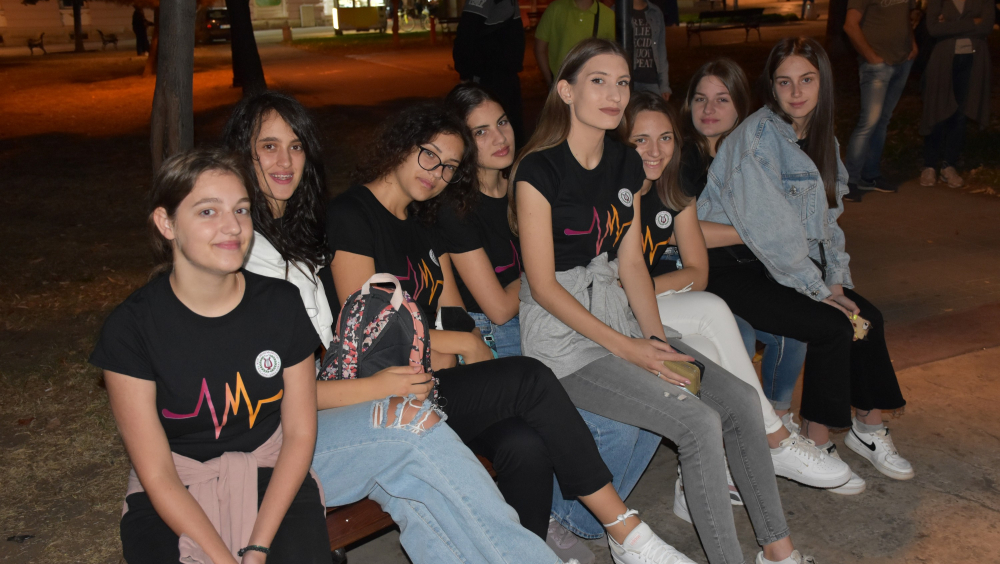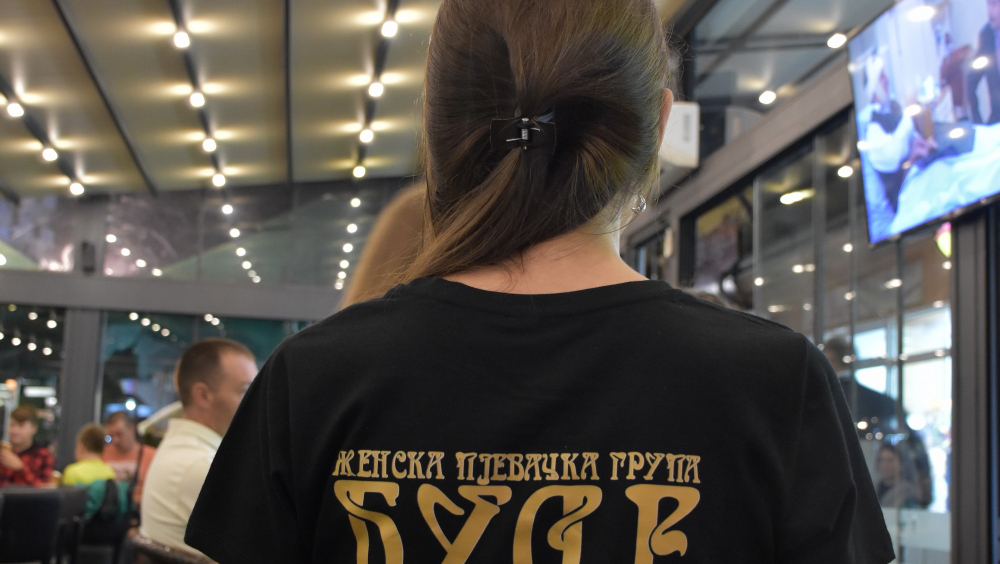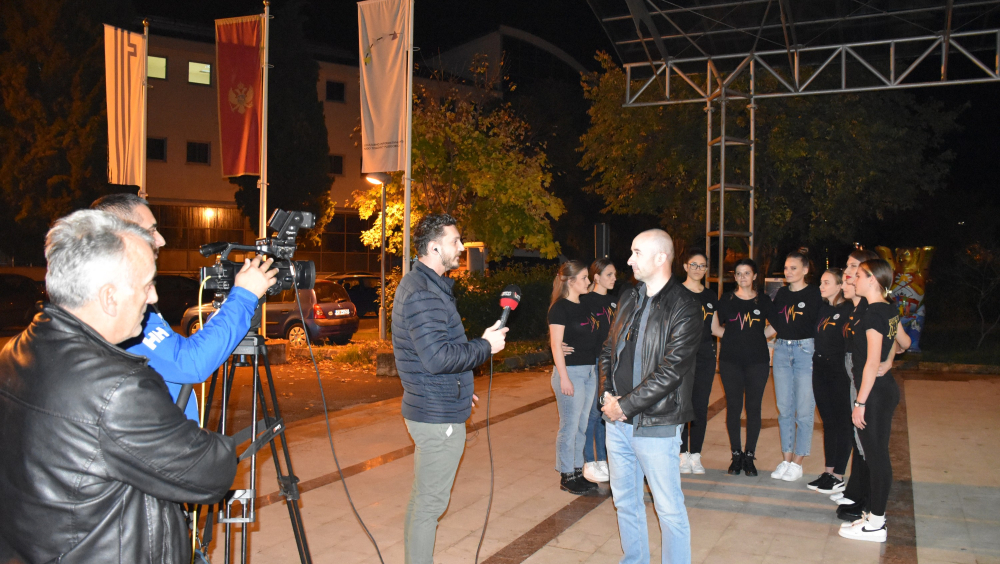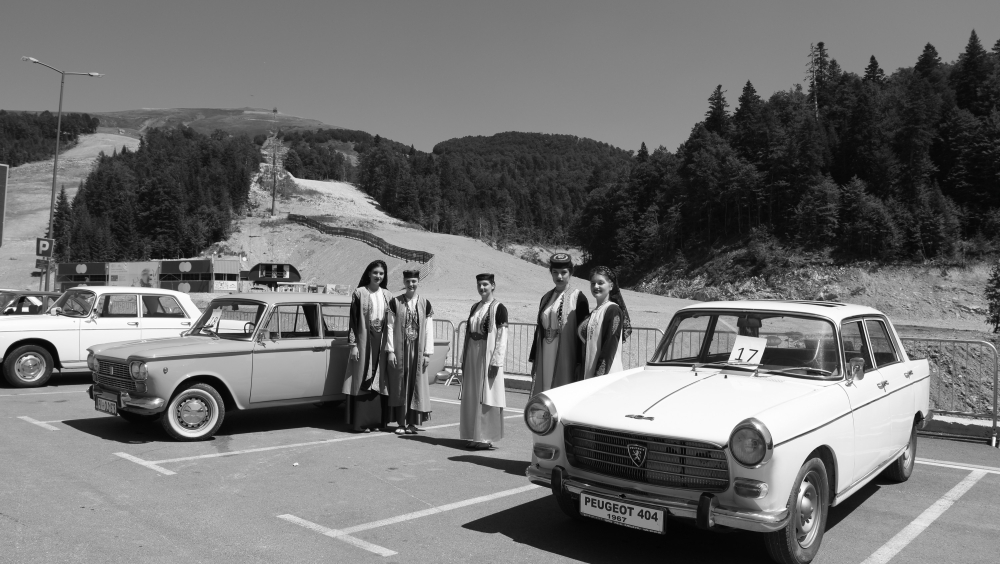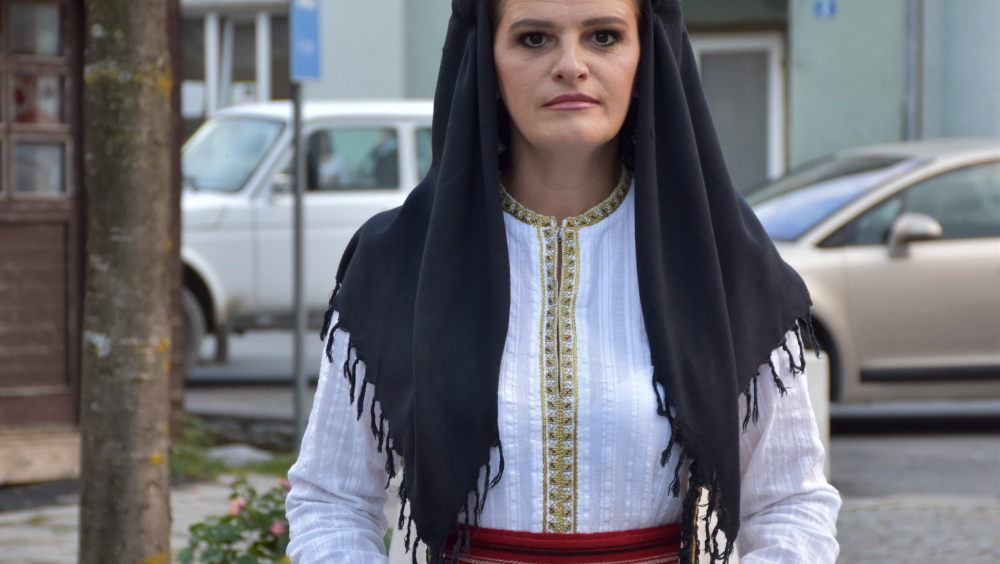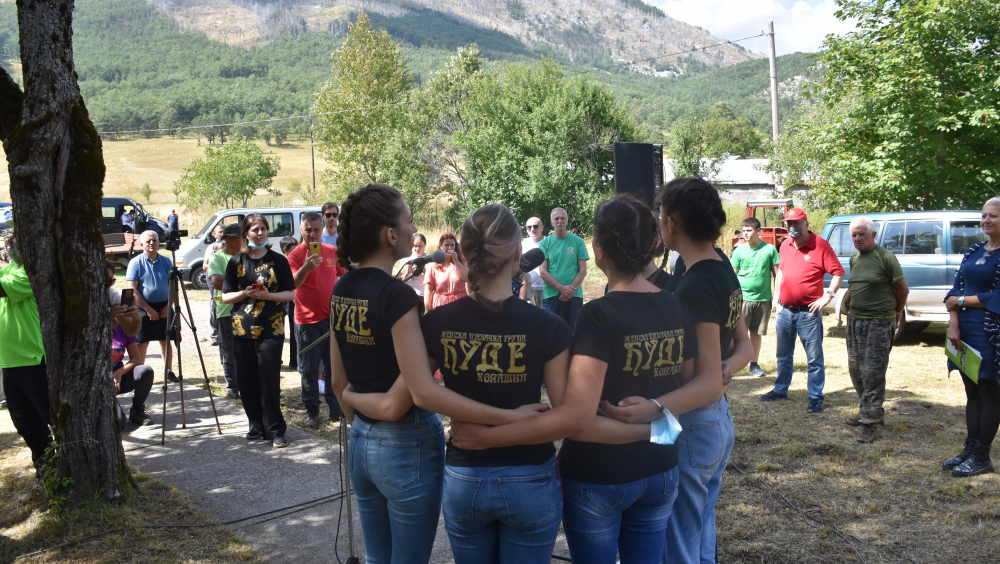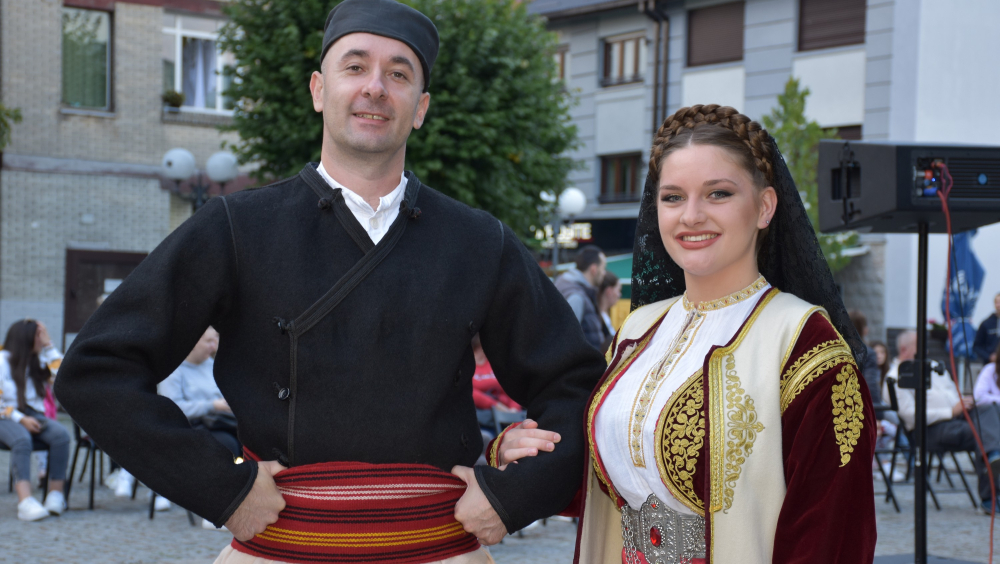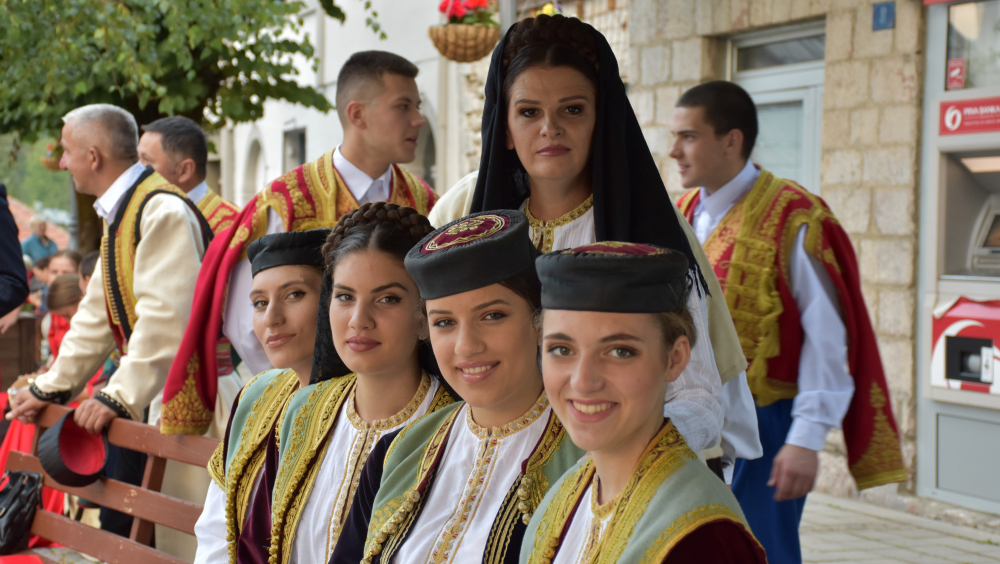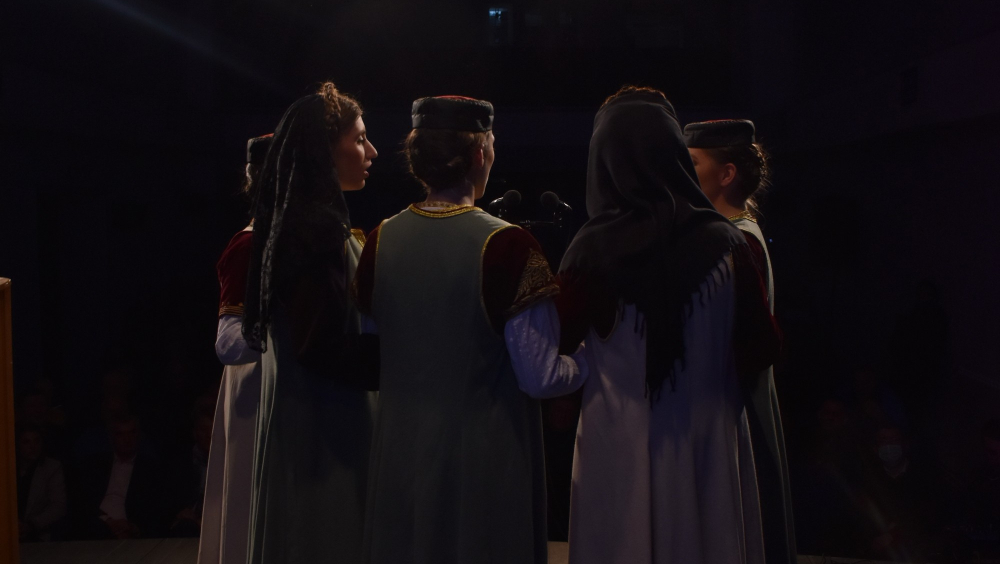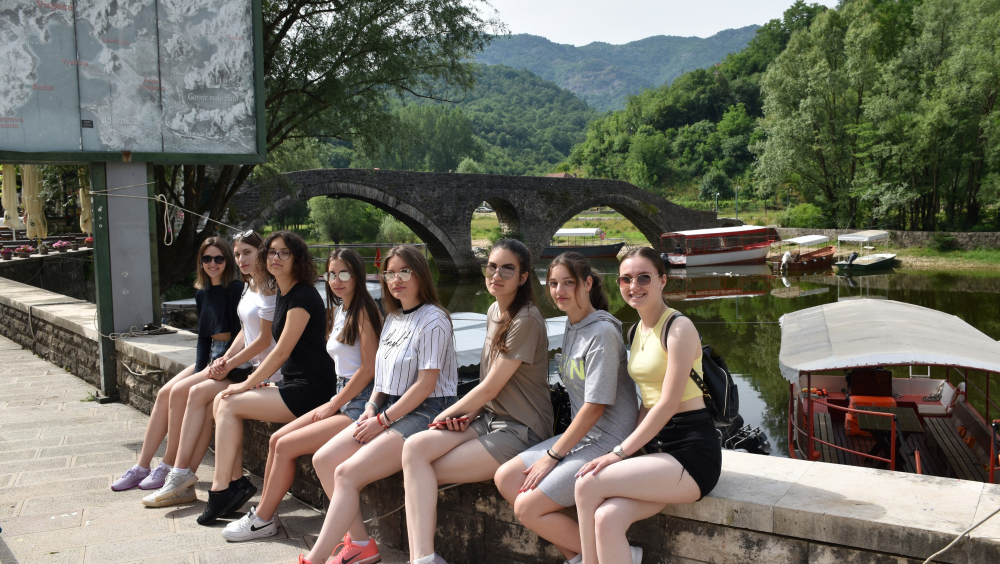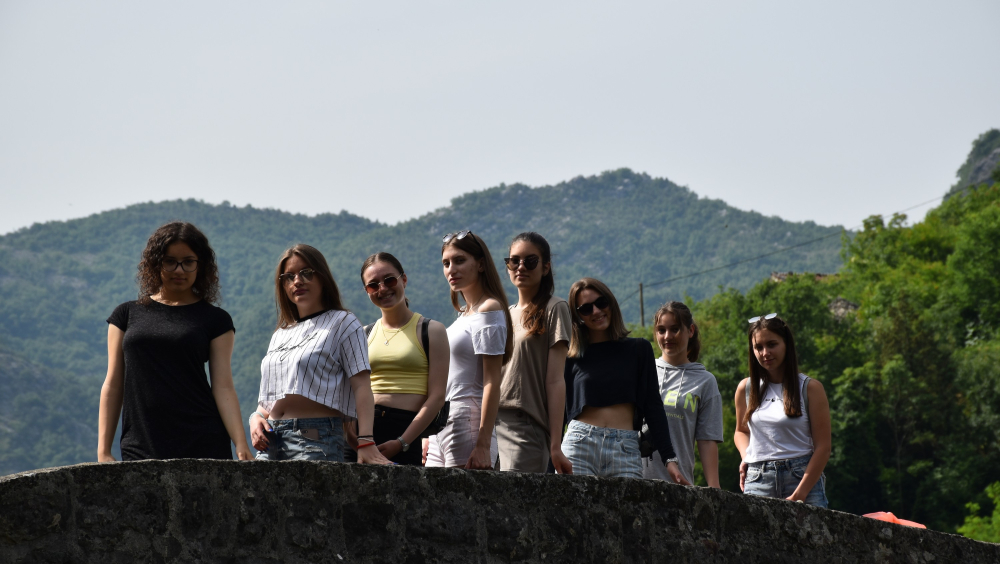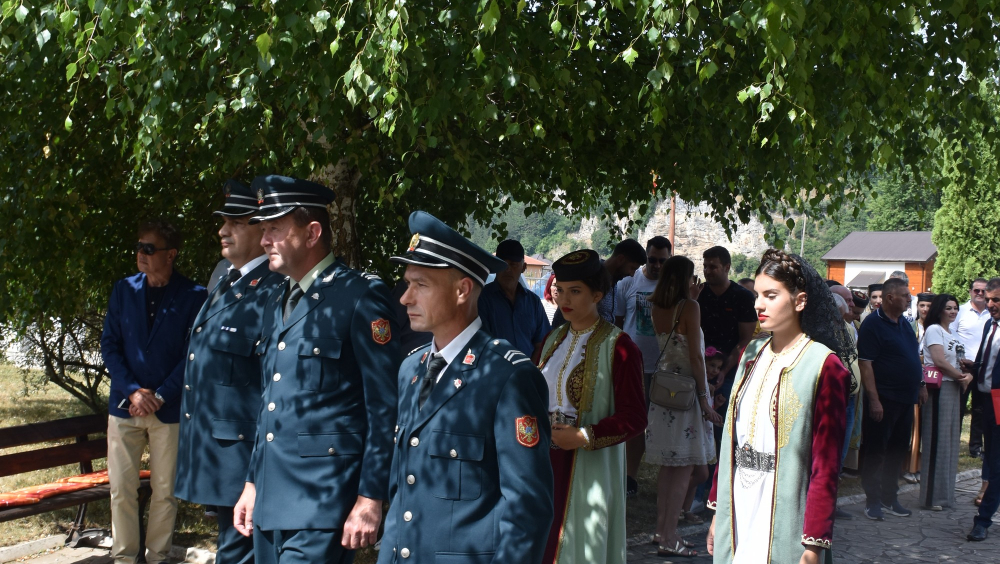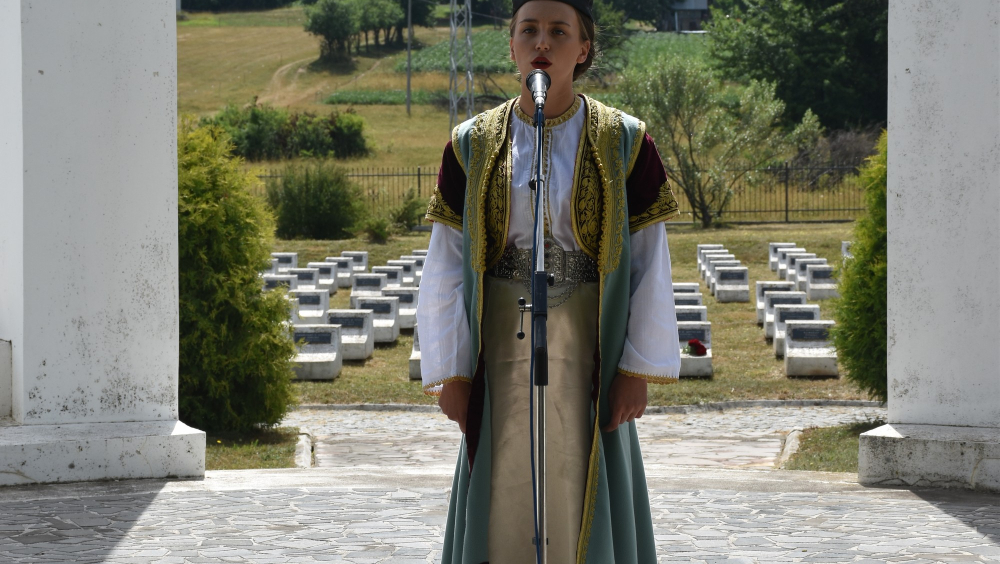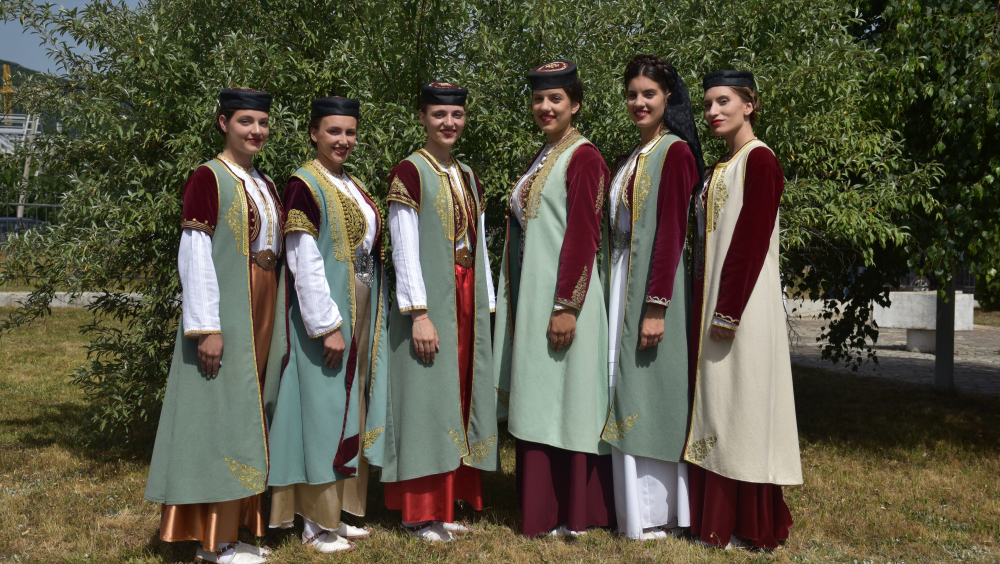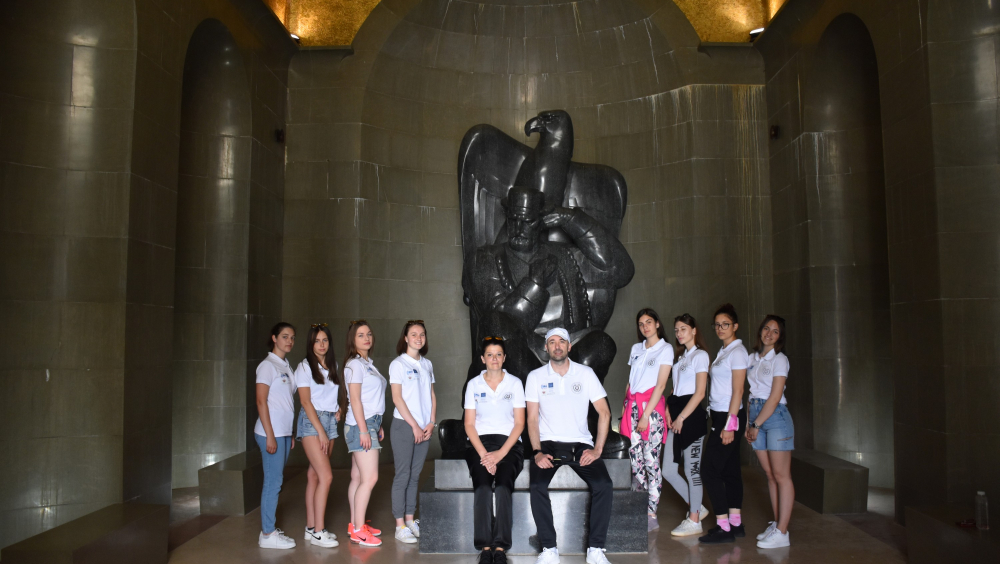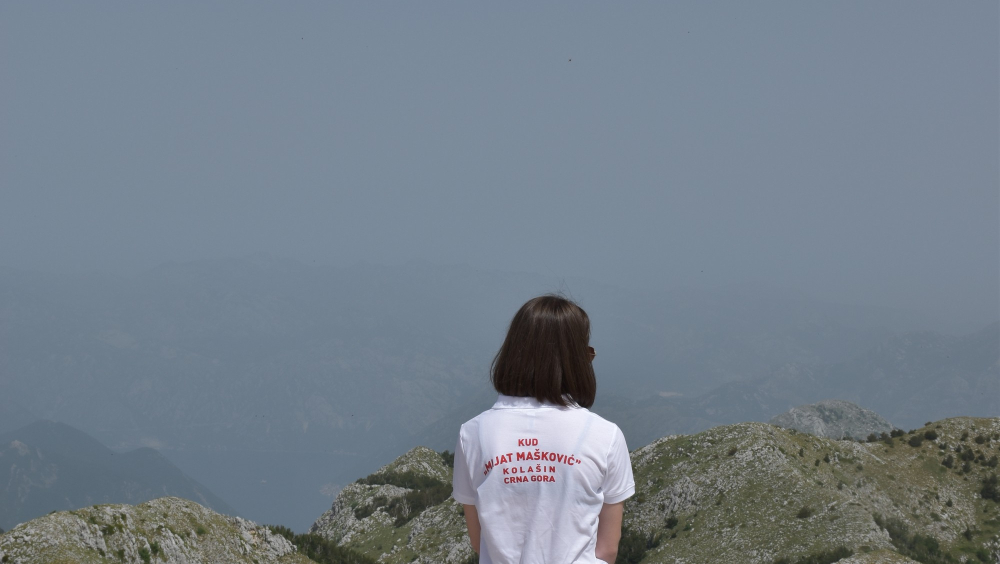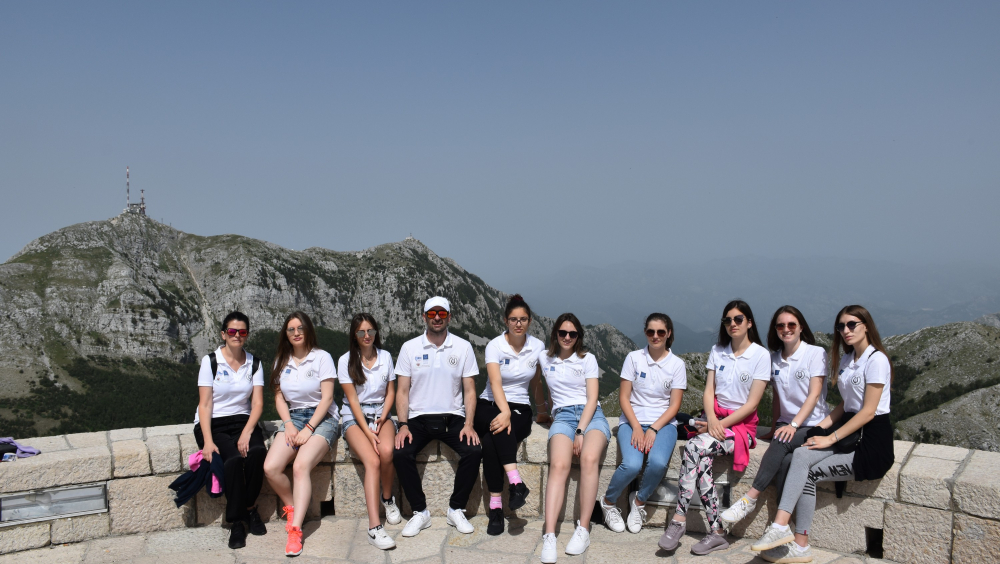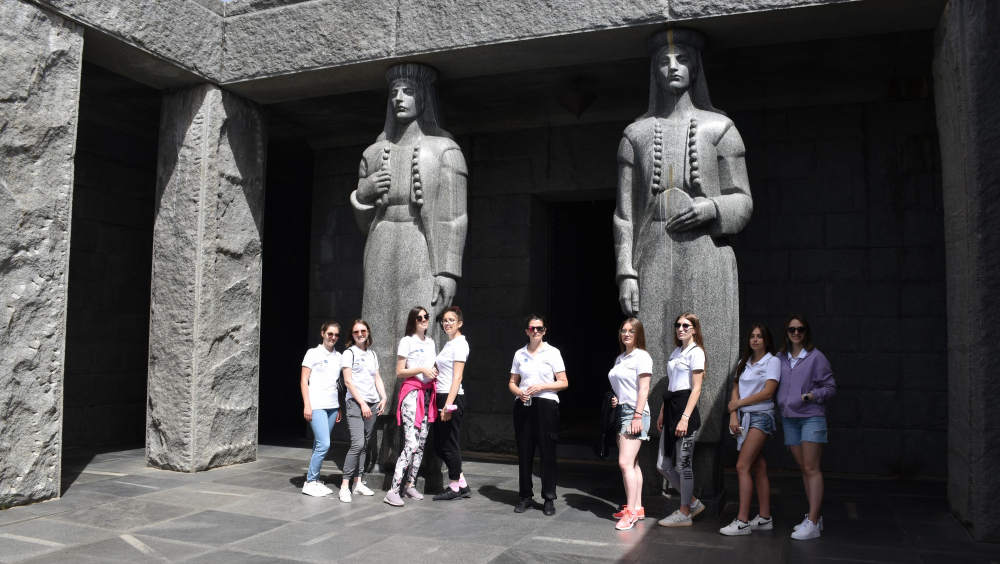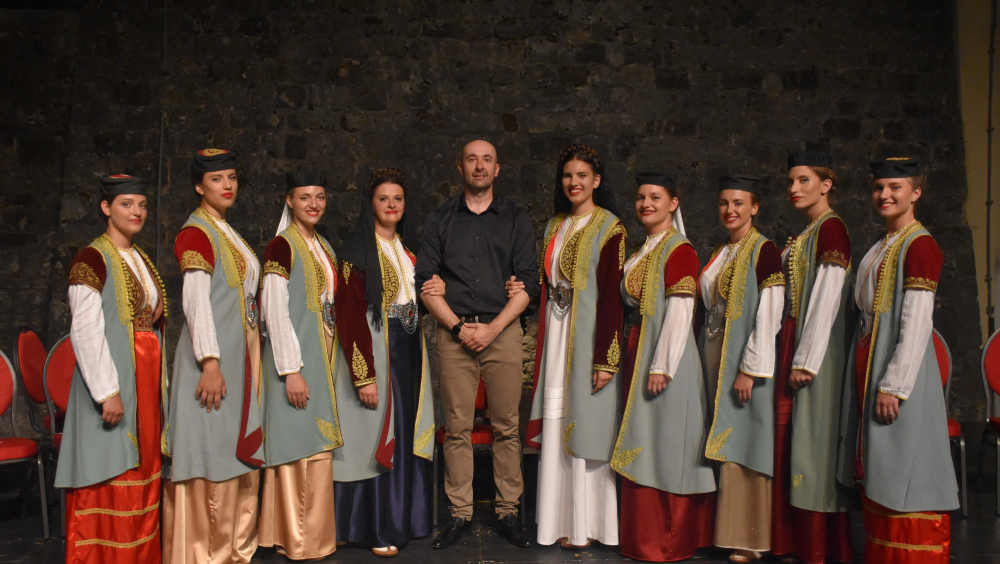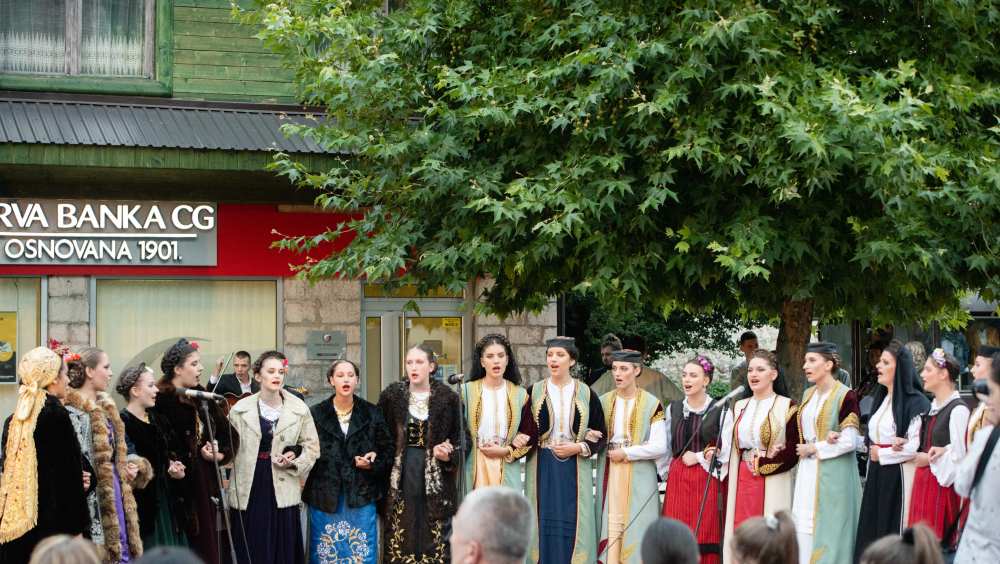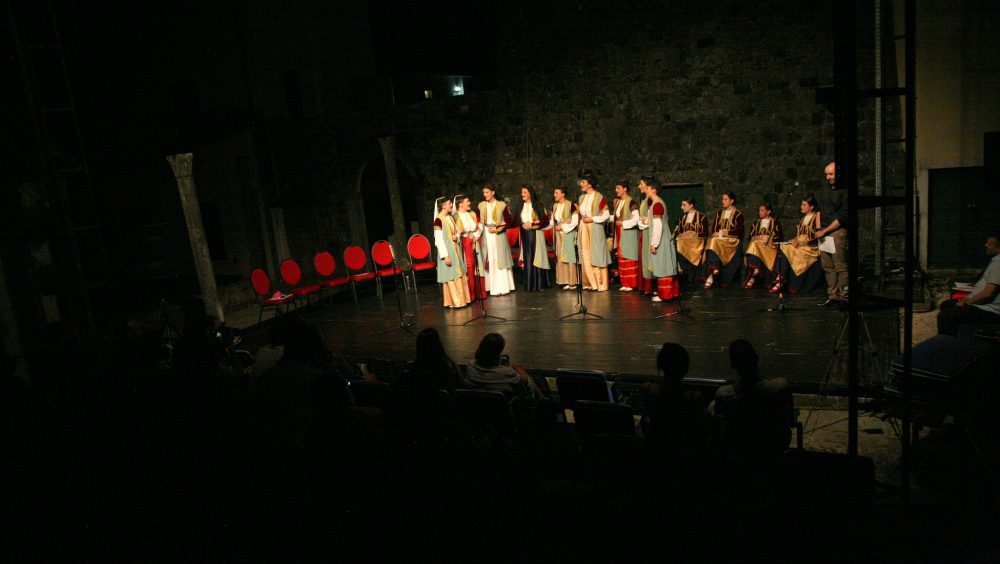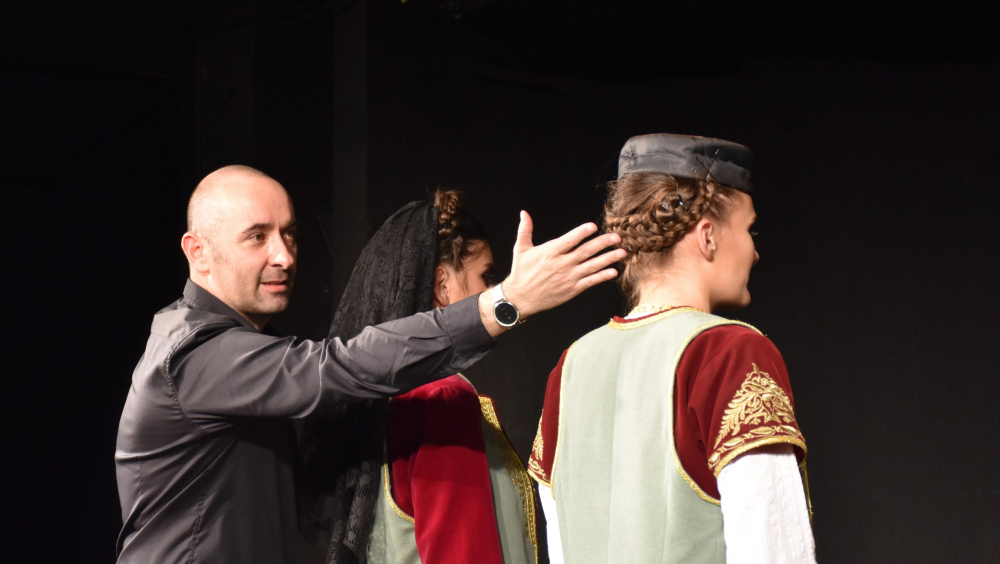Survival – Voices of Hills
This is an amazing story about dozen girls which are succeeded to save archaic type of music heritage. This is a story about female vocal group called “Djude” from little town Kolašin (Montenegro), and this story is about love, believing and dedication.
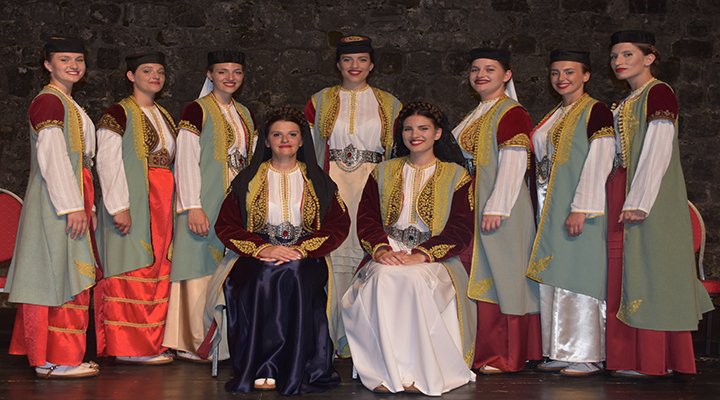
When it was clear that the archaic singing – heterophonic two-part singing with emphasized second in the vertical sonority in a nontempered and narrow sound system – in Montenegro is disappearing from female heritage, they are the one who takes control. Using field research, learning from experts, visiting fields themselves and interviewing the oldest narrators, they have assembled mosaic about old a cappella singing. They’re starting to rule with that skills and fight against stereotypes. The old music heritage of the smallest country in Balkan would disappear without them. Today, “Djude” are representing the phenomenon. They are performing the oldest lullabies, wedding songs, funeral songs, usual and funny songs. They are inspiration to Europe. At “Djude’s” there are still dragons, fairies, love magic and legends. In their songs mythical creatures are flying over the fields, girls are regretting about carefree life, the brides are preparing for wedding and girls tell the boys through the songs that they are equal.
They are singing in one of the hardest types of musical expression, in special musical system where some other rules apply - rules of hills...
Survival – Voices of Hills
Mountainous regions of Montenegro, the smallest country in Balkan, has had very interesting history with constant battles for freedom. Social arrangement has been organized on different tribes princip which are recognized like mythical incoming ancestors. Those tribes were fighting themselves a lot because of their rights to lands for cattle or because of blood revenge. Identification according to tribal belonging is still alive in Montenegro. Contemporary Western European civilization was broke through Montenigrian areas very slowly because of hard walking roads and specific historical circumstances. It’s the same case with the music too.
Montenigrian musical heritage is specific because it is archaic model of singing where dominates singing in heterophonic two-part singing with emphasized second in the vertical sonority in a nontempered and narrow sound system. That type of singing has keeped a few decades back, but contemporary tempered music system has never came to life like a practice in rural mountain area! For example, singing in thirds is completely unknown to them (that’s characteristic of the coast)! Unlike modern understanding of singing in seconds is dissonance, in continental Montenegro singing in seconds is consonance and community consider it nice and desirable.
https://www.youtube.com/watch?v=7t9xNSP0JEg
This type of singing has been lost, specially at women, over the time because of migrations and the skill of singing like that became rare. In Montenegro there is no education institutions for ethnomusicology and that also contributed a lot. Some individuals that were dealing with this like experts found some old songs. Since 2015. in Kolašin, small town on the north of Montenegro, was organized “Ethno-camp” - international research station that brings experts and students that are dealing with exchange of skills and knowledge, and goes to the „field“ and interviewing and filming the oldest population. At the same time, in Kolašin gathers a group of the girls who wanted to learn that archaic type of singing. They were also members od the “Ethno-camp”, they were listening to audios, talk to the old woman that are the last carriers of that skill of singing, and of course listen to the lectures of experts at the same time. For theme, it’s discovering of one forgotten world. They realized that the old skill will be forgotten and they dedicate learning it. Over the time, the girls become the last (formal) carriers of this skill of forgotten singing. They are the Female singing group “Djude”- the last female formal group in Montenegro that care and sings two-part folk singing with second as consonance!
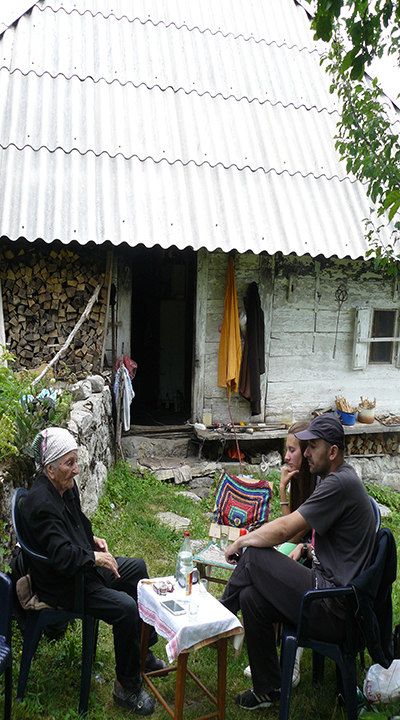
Name “Djude” is impossible to translate. That is the part of female clothes that was used when the old national costume were disappearing. Somewhere, it’s like festive blouse, and somewhere it was handmade and it was like sweater. Symbolism of the name is in connecting past and the present – in survival.
In front of “Djude’s” was big challenge. Strong sound of which everyone were thinking it’s “off key”, for “Djude’s” it was inspiration. Their generations were looking them strange, and they didn’t realize what’s happening. The same thing was at rhe first concert too. As we said, Montenegro doesn’t have ethnomusicology institutes and becauce of that, the number of ethnomusicologist is very small, maybe two or three than weren’t going to colleges in Montenegro. On TV there is not shows about the old type of singing, or they were filmed in first half of XX century.
From the experts and teachers from the „Ethno-camp“ first support is coming. ”Djude” signed up on the international competitions and started to take rewards, also on the competitions with the professional singers. But, in our country it was hard to change consciousness. That’s what the anecdote says:
During the filming one of the TV shows, the sound engineer was returning the group to sing again becauce he was thinking it’s “off key”. But, when he realized that the girls were singing the second awere, he was impressed and the show became very popular, ant it was showing over and over.
https://www.youtube.com/watch?v=B7b7XSOeBbY
What the old songs are talking about? If you want the answer, you have to return deep into the past, in hills. In period believing in dragons, fairies and the power of spoken word. One of the first songs that was found in the environment of the Kolašin was “The dragon is flying over the sea to Danube”. Long and hard singing with narrow sound system was singed next to the fireplace with the sound of turning the casserole dish that imitates the sound of dragons wings. According to legend, the dragon kidnapped the girl and and fly through the passage on mountain Tali (The Moraca tribe). Since than that passage is called “The dragons cave”, and today it presents the challenge for the alpinists. When the dragon tried to go through the cave, while caring the girl under the wing, the dragon broken the wing.
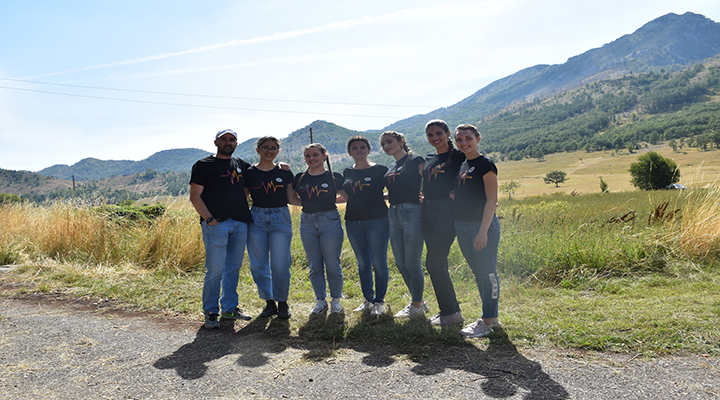
Than, it was found a lot of songs with the different purpose:
Lullaby that is connecting the baby with the mountain in which the wolfs are borne, and the beeies that nurse with honey. Gold cradle four masters are coving.
https://www.youtube.com/watch?v=aSuPGI04ZwM
The female song where she is suffering for carelessness becauce she’s getting married soon. That is the last example that is saved of hard singing with special ornaments that are remaining of “quacking”.
The group songs with unusual ornaments with „stopping tons“ that are famous as “grohot”, that are descrebeing a life in the mountain are one of the hardest types od vocal expressions. One of the girls is starting the song and the others are joing on the end of the first verse, and one of them sings the specific second. The singing is very loud and when it’s singed on mountains it can be heard kilometers away.
The special type of the singing are the songs with the funny themes that are lascivious somethimes. They are designed in the moment of singing like a respond on man provocation. In the past, parties were at houses on villages or on meadows at the summer. There was no music instruments except gusle and flutes ("svirala"), and a cappella singing was the 90% of the party. Ingenuity and poetically lyrics were coming to the fore and reached perfection of folklore creativity. In them, women are equal to men, and sometimes they win in lyrics.
https://www.youtube.com/watch?v=DoYmQ6F0VHk
Just song or rhythm by steps were accompaniment the dance and that’s why Montenigrian hills are unique and special maybe in the world!
During thirties years of XX century, American researchers Albert Lord and Milman Parry camed to Montenegro to research this phenomenon. Dance with musical instruments as accompaniment is showing later in XX century and only in cities, but on village parties in nineties years (XX century), a lot of dances keeps the archaic character and they were performing with archaic singing, and just sometimes with mouth organ.
https://www.facebook.com/watch/?v=2736288463316736
It hase been noticed the role of music in funeral cycles customs – and that’s called “tužbalice”. Mourning of the decedent with poetical lyrics that speaks about his virtues and speaking about his ancestry to announce his arrival to the “other world”. Today, this is also a part of the heritage, but on fortunately the number of women that sings this is getting smaller every day. ”Djude” learned this type of singing too from the woman that are still practicing this type of singing on cementeries.
https://www.youtube.com/watch?v=aYa_qcNwPA0
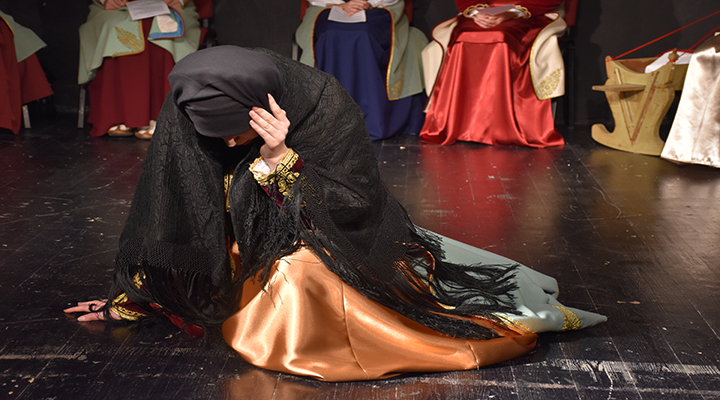
Once upon a time, on weddings there was no paid music (orchestras) like today, or players of music instruments. Because of that there were girls who were indebted to sing different ritual and funny songs. They were friends of the bride and they were singing of all the important parfs of the wedding: when they are making the wedding cake, when the bride is changing her hairstyle and put the scarf that is called “fel” (veil), when the wedding guests are coming for the bride, when the bride is coming out of her room, and a lots of more... A lot of this songs are saved on “Djude’s” repertoire. It’s also saved the songs that are dedicated to Christmas, St. George's Day and St. Peter's Day.
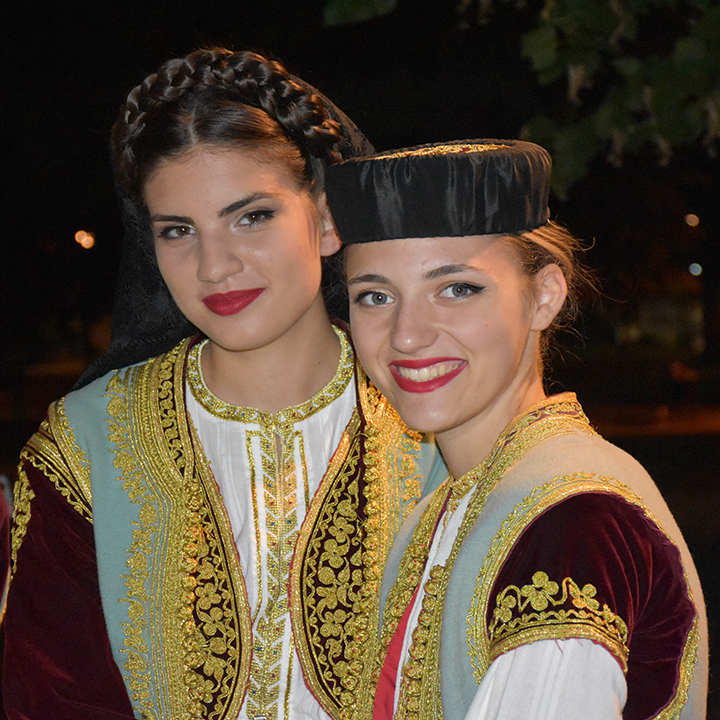
This story confirms anthropological thesis from Balkan that the woman are the best keepers and transmitters of the heritage. Without the female singing group “Djude”, the archaic two-part singing of Montenegro would be lost forever. Thus, it stays equal to part of European culture, it enriches with it’s rurality and it reminds of existing the different music systems and rules in micro-communities of the Old Continent.
After “Djude” is there going ti be the new “Djude”? Is the mission accomplished?
Davor Sedlarevic,
davorsedlarevic@gmail.com
Montenegro is in the EU accession process. It is developing and building very fast and it’s becoming significant tourist destination. But, there is a fear from the fast globalization and losing identity and special cultural values that are important for small communities. Story about “Djude” is incredibly story of one small mountain town, which has opened new possibilities with help of dozen girls through the valorization of old archaic music. Europe is the fortune of different musics. Europe is rich in different opinions, open dialogues and helping in hard moment, but it should be rich in heritage that is saved in the “last moment” and on that way that Montenegrin heritage would join to Europe maybe faster than Montenegro. ”Djude” are the Europe. ”Djude “ are the continuity. They are the proof that woman have very important place in traditional culture and they are aware of that, and what is that if it’s not Europe dimension?!
https://www.youtube.com/watch?v=RKrwbE3Ch5I&t=388s
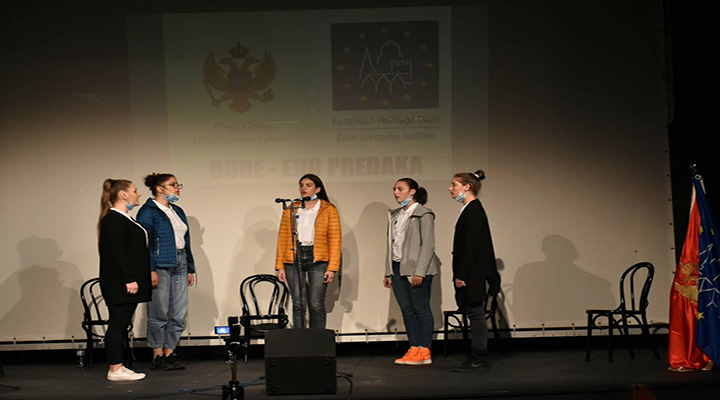
This example will influence to courage other small communities in Europe to believe in themselves and their dreams, and in that nothing is lost forever. Europe is one cultural address with a lot of small stations which are making it a credle of culture no matter how big they are, the archaicness or gender affiliation.
A dozen girls has changed the music history of one people – follow their example!
Project legacy
Budget Breakdown
